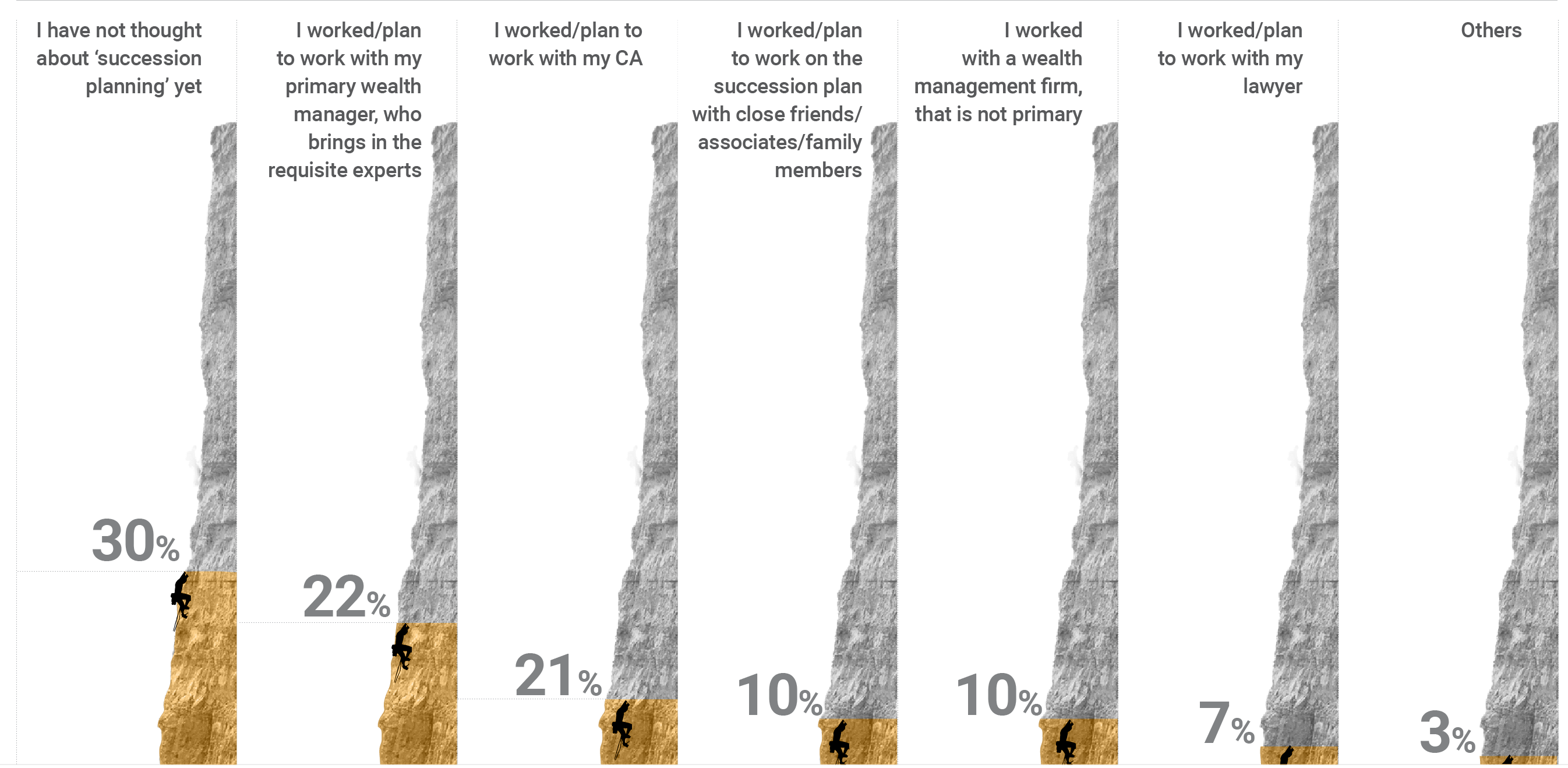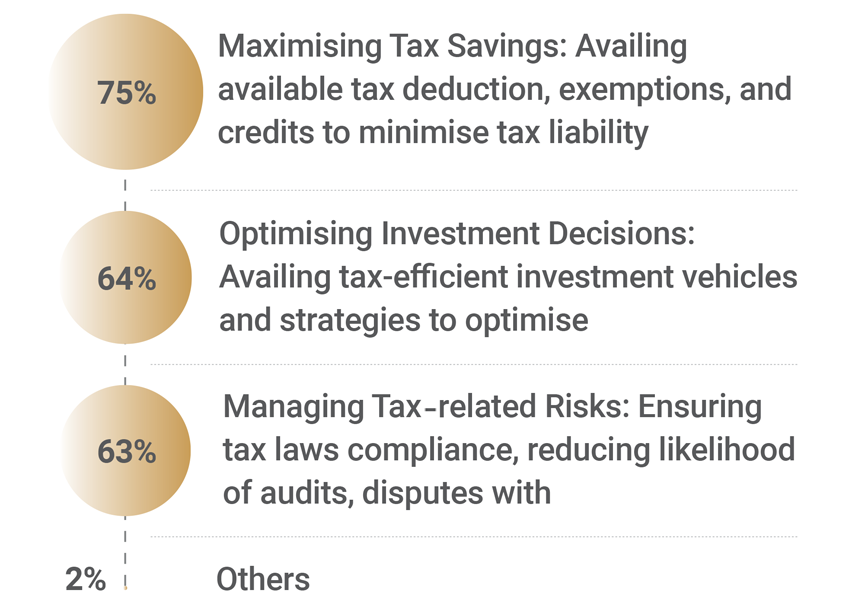
An Ultra-HNIs financial legacy is a masterpiece
painting, with each stroke representing a different
aspect of wealth.
A comprehensive succession strategy cannot be
designed in silos. It requires seamless collaboration
between an Ultra-HNIs advisors – legal advisers,
chartered accountants, bankers and private bankers.
This approach ensures that every facet of wealth
transfer is meticulously planned, risks are minimised,
and benefits are maximised. This collaboration is not
only beneficial — it is essential.
The legal advisor adds the outlines, bringing in their
expertise in crafting wills and trusts, ensuring that
the succession plan complies with all regulatory
requirements and addresses potential legal
challenges. Their insight is crucial in safeguarding
assets from litigation and ensuring a smooth
transition.













